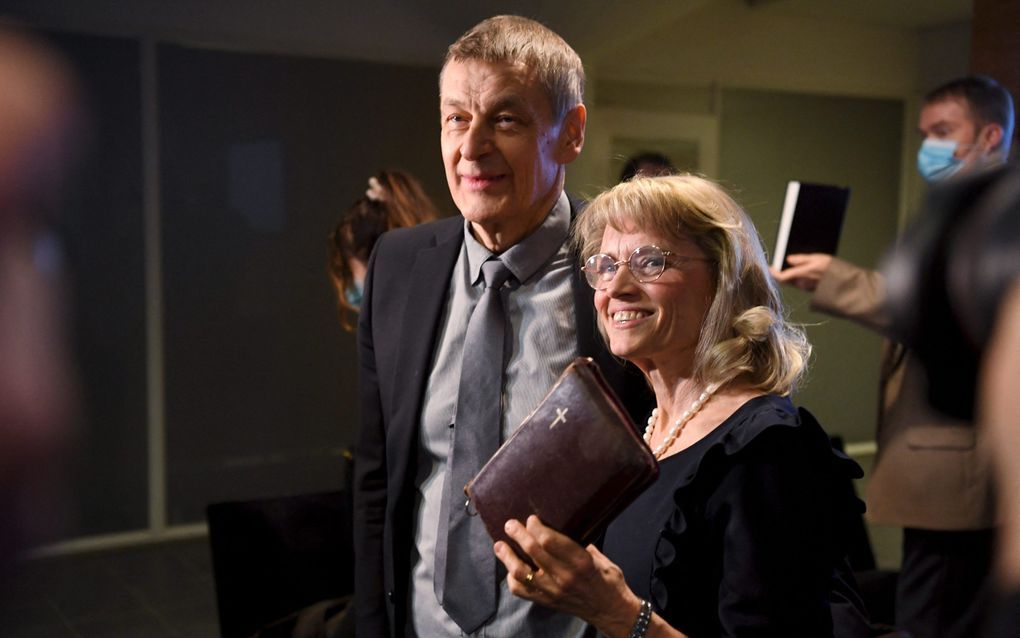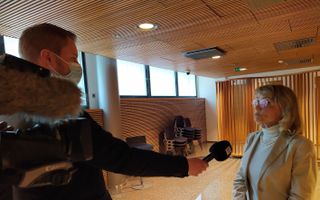"Do you love Jesus?" a five-year-old girl asked a prison director on his bike on her way home from Sunday school. She continued that you cannot get to heaven if you do not believe in Jesus.

Finnish MP Päivi Räsänen is prosecuted for her Christian ethics on sexuality. Follow all developments here at CNE.news.
Featured
All articles with this tag
Päivi Räsänen
Päivi Räsanen (born 1959) is a Finnish politician for the Christian Democrats. The Christian woman is best known for the lawsuits filed against her.
What are these court cases about?
About whether Päivi Räsänen had the right to express her views on Biblical teaching on (gay) sexuality. In her opinion, sexuality is reserved for within the marriage of a man and woman. She denies that homosexuality is equivalent to this and calls it sinful.
In June 2019, in a tweet to the Evangelical Lutheran Church in Finland, she asked whether the sponsorship for Pride Week was correct. "How can the church's doctrinal foundation, the Bible, be compatible with elevating sin and shame as reasons for pride?" she tweeted. Räsänen attached a picture of Romans 1:24-27.
This led to the first charge by the prosecutor, Maija Päivinen: insulting "homosexuals as a group" and sedition. According to the prosecutor, Räsänen sees gays as "inferior."
The second charge is related: In December 2019, Ms Räsänen was interviewed during a satirical radio programme entitled "What did Jesus think of gays?" During this broadcast, Räsänen was questioned about (traditional) marriage and sexuality. She stated it is " obvious that God did not originally create human beings as homosexuals." "He created a man and a woman and wanted them to be married to each other. And it is clearly sinful and against God's will if you have other sexual relations."
According to the prosecution, Räsänen had said "derogatory" in this programme that "homosexuals were not created by God like heterosexuals." In court, Räsänen and her lawyer vehemently denied that she had said that.

The third allegation is about something somewhat older. In 2004, Räsänen (a former doctor) wrote a Finnish brochure for the Luther Foundation entitled "Male and Female He created them". In it, she calls homosexuality a "developmental disorder." She denies that same-sex attraction is a normal and healthy variant of sexuality. On the contrary, it more often leads to a life of casual sexual contact than stable relationships. If homosexuality becomes normal, it makes young people especially vulnerable, as it becomes easier for adult men to contact underage boys.
The prosecution finds all this offensive and discriminatory. Räsänen's booklet "violates the equality and dignity of homosexuals and may incite intolerance, contempt and even hatred towards homosexuals," the prosecutor writes in her indictment. "Such statements insulting homosexuals are discriminatory and exceed the limits of freedom of expression and religion."
The politician denies any hatred of homosexuals. In February, she said in court, "My motive is love because my opinion comes from the loving Word of God." Her lawyer argued that little is left of Christianity if you can no longer talk about "shame and sin".
Räsänen appeared in court with a Lutheran bishop. What is his role?
Bishop Juhana Pohjola is the director of the Luther Foundation, which published the brochure. In this way, he is connected to the case.
What could be the consequences of the Räsänen case?
If the court rules that Räsänen should not have said and written this, it naturally leads to the question of how Christian ethics must be taught.
As elsewhere in the Western world, Finnish Christians are used to the fact that multiple views of sexuality coexist: the traditional one, which says that the marriage bond binds and protects both partners and the modern one, which states that sex is an individual issue, whether heterosexual, homosexual or something else, which everyone must decide for themselves. If Räsänen is condemned, that first option will become socially undesirable. This will have far-reaching consequences for Christians' freedom of expression in Finland.
What consequences will this have for the rest of Europe?
Those consequences will only be once the European Court of Human Rights (ECtHR) in Strasbourg rules. Because all member states have their own traditions, the ECtHR has always been very cautious about religious freedom. So, a landmark ruling need not be expected from that side.








